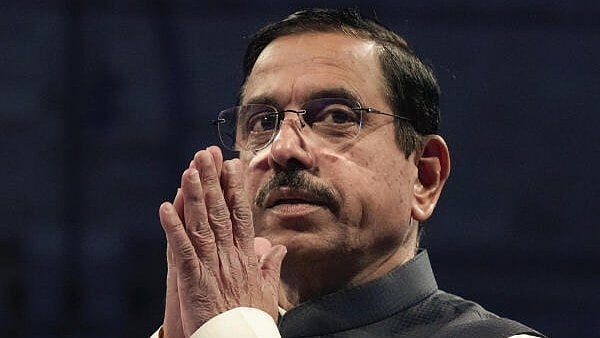
Pralhad Joshi
Credit: PTI Photo
New Delhi: Union Food and Consumer Affairs Minister Pralhad Joshi on Saturday said that Karnataka received 300 per cent more funds under tax devolution from the NDA-led Union government since 2014 in comparison to the Congress headed UPA regime.
The state received Rs 2,85,452 crore tax devolution between 2014-2024 under the NDA government headed by Prime Minister Narendra Modi while it got only Rs 81,795 crore between 2004-2014 during the Congress regime, Joshi posted on X.
Slamming Chief Minister Siddaramaiah for criticising the Centre on tax devolution, Joshi said “The Karnataka government needs to worry about the current state of finances in the State and concentrate its energy on reducing the burden of the people in the upcoming Karnataka budget."
"The 14th Finance Commission, which was implemented by the NDA Government at the Centre, made the highest tax devolution from 32% to 42% in 2015. The 15th Finance Commission recommended this to 41% to account for the newly formed Union Territories of Jammu and Kashmir and Ladakh," Joshi said.
Criticizing the Congress, Joshi added, "While in power, successive Congress governments did not empower states. In fact the tax devolution was very little to the states under the Congress led regime at the Centre."
Joshi was reacting to Siddaramaiah's social media post where he said there were media reports that the NDA government is preparing to recommend reducing Karnataka’s tax share from 41% to 40% through the Finance Commission.
“Any attempt by the Centre to further reduce Karnataka’s rightful share of tax revenue is not just anti-Karnataka but also a direct attack on the federal structure enshrined in the Constitution," Siddaramaiah had said.
Several media reports hinted at the Centre looking to cut central tax revenues that it shares with states. The suggestion will likely be made to the Finance Commission of India. The Arvind Panagariya-led panel is expected to submit its recommendation by October 31, with an aim of getting it implemented from the financial year 2026-27.
